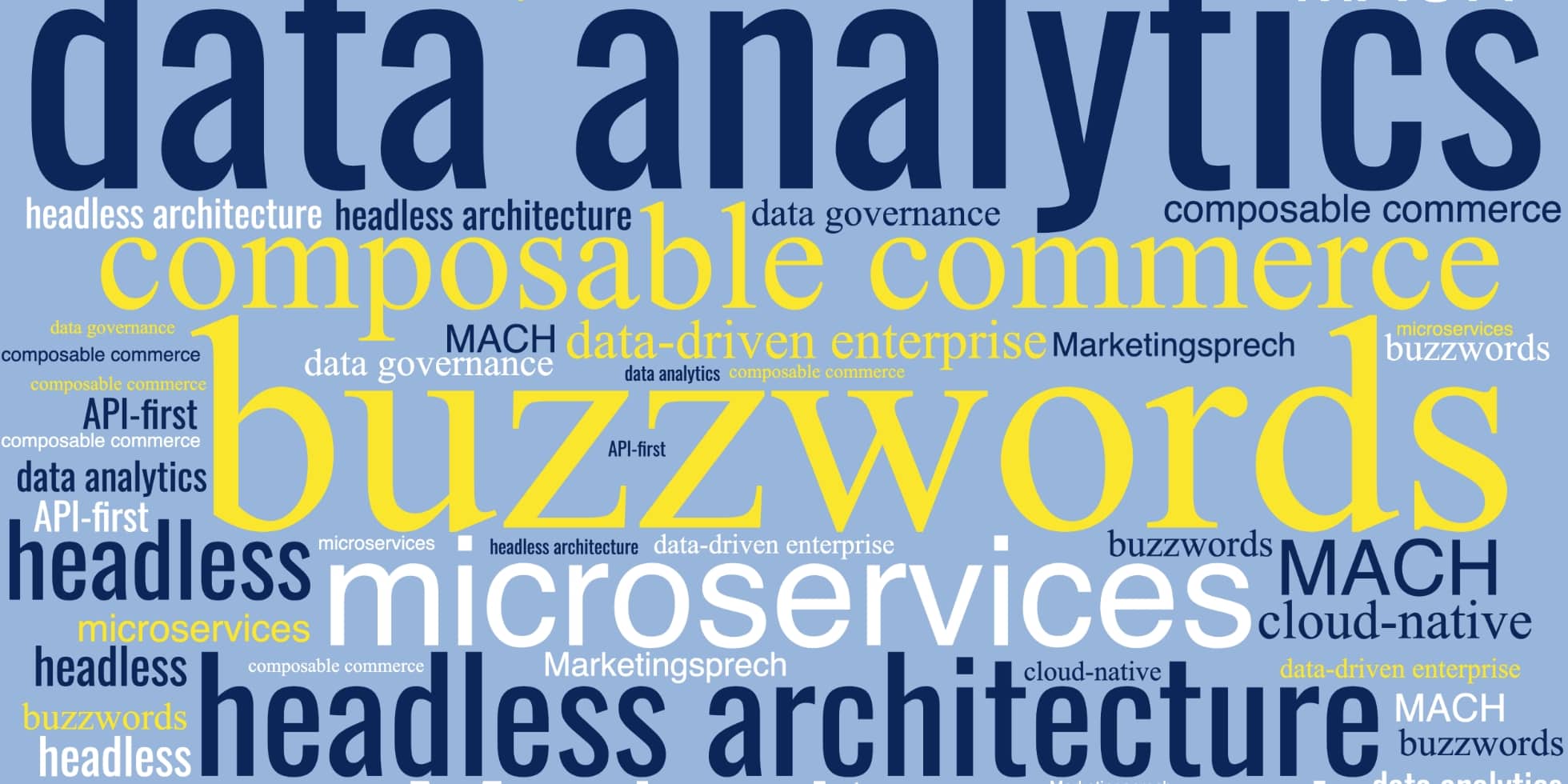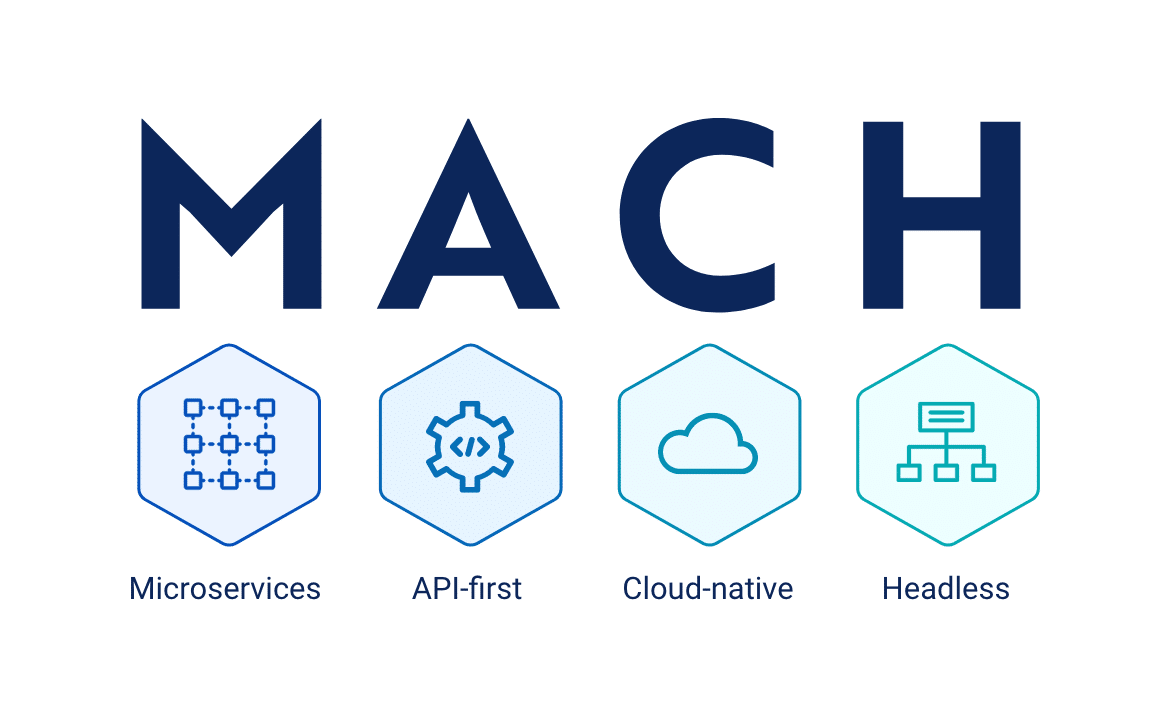Whitepapers
Buzzwords everywhere

3 things you need to know about the latest buzzwords in the software market
The software market is characterized by ever changing trends introduced to the general public in the form of buzzwords. Data-driven enterprise, data governance & analytics, microservices, API-first, cloud-native, headless – there are now so many terms being thrown around and discussed, making it is increasingly difficult to keep track of them all. In this blog article, we intend to provide you with three insights and tips to keep in mind when you are navigating the buzzword jungle in search of the right software solution.
Not all that glitters is gold!
Communication in the software market is driven by buzzwords – manufacturers use them to describe their software products and service providers include them in their marketing portfolio. The primary goal is to attract attention and to promote its own company in the competitive software market as modern and to sell the presented solution as a state-of-the-art product. Accordingly, buzzwords are used in an inflationary manner and their meaning is often very stretched. Whether the systems and software tools advertised with the buzzwords deliver what they promise is ultimately a question that must be validated on a case-by-case basis.
But how much glitter do you need?
Companies seeking to position themselves for the future as an e-commerce company are often advised to adopt a software solution with a state-of-the-art tech stack that uses sophisticated syndication features to enable them to manage the customer journey via every channel and thus also to cope with social commerce, which is becoming increasingly important in global competition. Even if this recommendation is anything from wrong, the truth is that not every company should place its sales expectations on social media channels in the foreseeable future – and that, above all, a solid database and data strategy are needed in the company so that such software solutions can fulfill their purpose at all.
A buzzword is a buzzword
Looking into practice, we repeatedly find many decision makers include the vendors’ buzzwords in their personal or even official catalog of criteria when searching for the right software solution – even if they are not 100 percent clear what is behind the terms and to what extent they play a role in their situation. We therefore recommend the following: When selecting new systems and software tools, always start with yourself and outline your requirements before turning to the research phase and the often overwhelming market with its loud marketing bluster. Because with a clear understanding of your own needs, you will navigate more confidently through the buzzword jungle.
Breaking through the buzzword jungle with Bertsch Innovation
As you can see, we’re not short of buzzwords in this blog either. This is because they are never just pure marketing jargon. Behind the terms are comprehensive concepts that are necessary for understanding the market, but due to their complexity cannot be presented in detail in all contexts in a way that everyone can understand. Since there are countless definitions on the internet, which in sum can quickly contribute to even greater confusion, we have put the twelve terms you should know in order to have an overview of the software market and its mechanisms into context in our Buzzword Jungle e-paper and described them in detail against the background of current challenges and technological possibilities.

Accomplish more together
We believe in the value of collaboration and exchange. This applies both to our customer projects, from which we generate many valuable insights for our product development, and to our growing partner network, with an extensive range of which we support our customers in their digitization.


